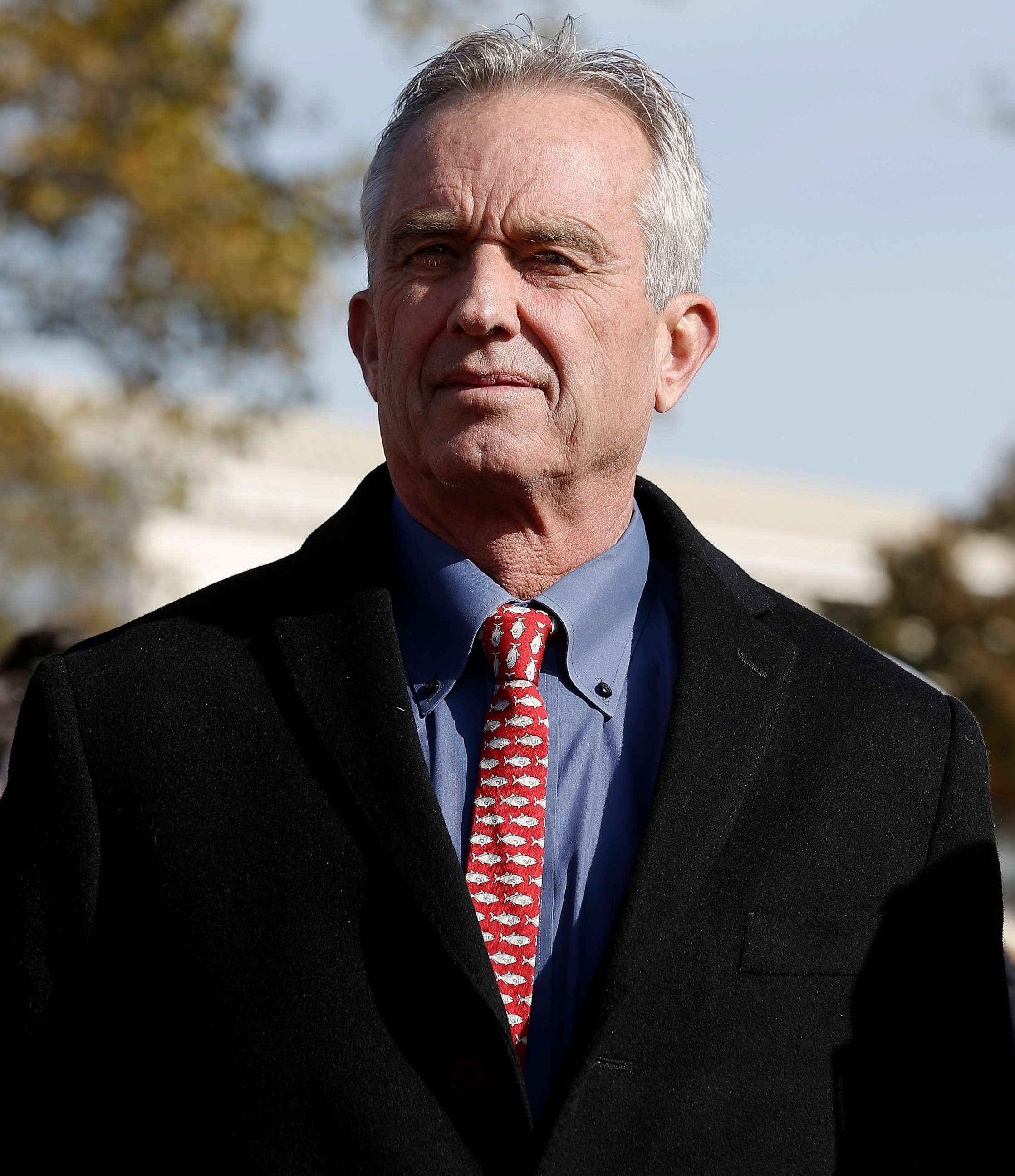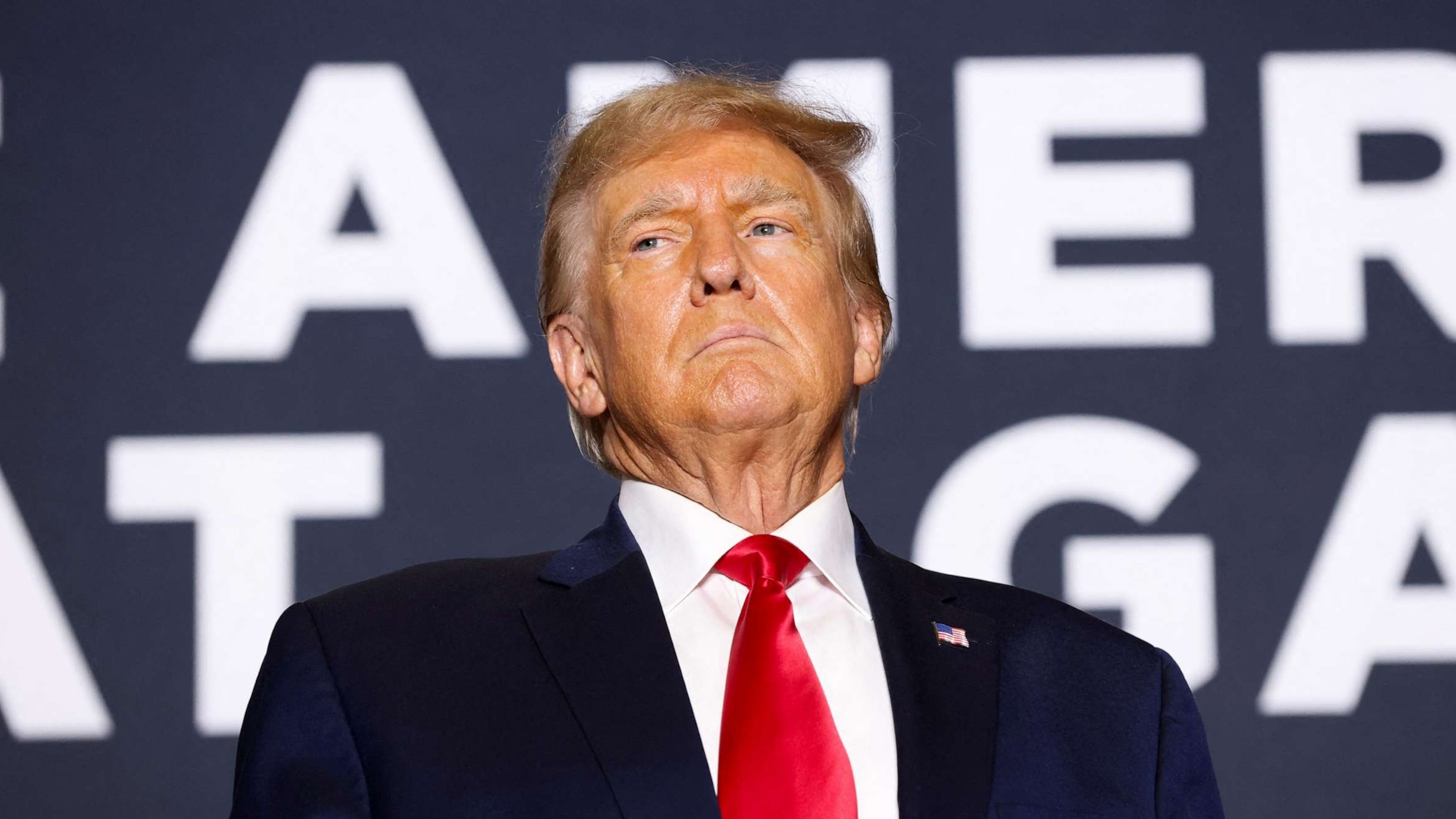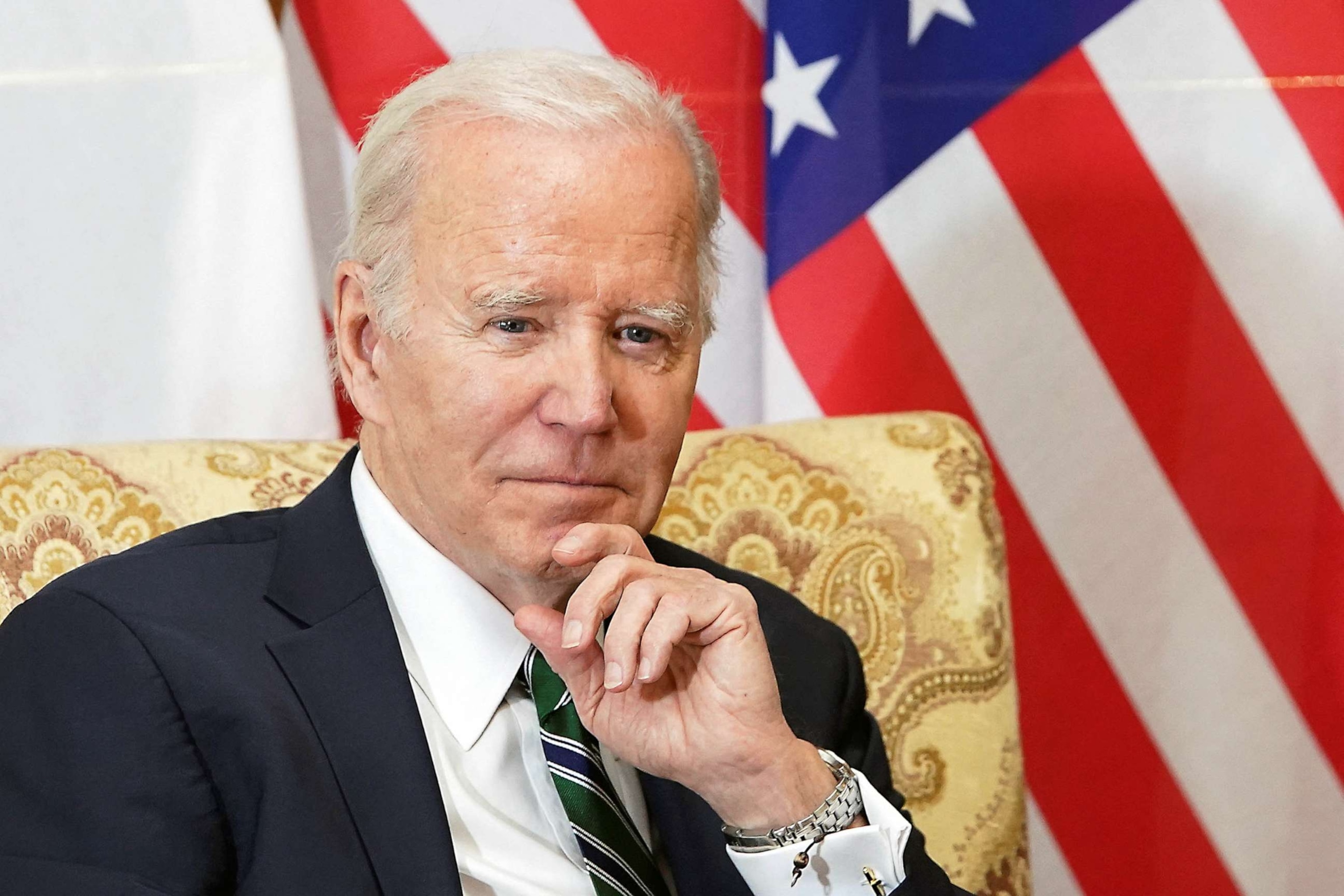RFK Jr.'s switch to independent campaign draws criticism from Republicans -- not Democrats
"Kennedy ... is more well-liked by Republicans than Democrats," an analyst said.
After Robert F. Kennedy Jr. announced on Monday that he was leaving the Democratic Party to instead seek the White House as an independent candidate, he drew immediate criticism -- from conservatives, not Democrats.
Republican National Committee Chair Ronna McDaniel quickly released a statement billing the 2024 hopeful as a "Democrat in Independent's clothing" and a "typical elitist liberal."
"Voters won't be fooled," she said.
In tandem with the committee's response, the GOP's national research team, which focuses on highlighting potentially negative information about rival politicians, released its own dossier on Kennedy pointing to dozens of his prior statements and policy positions of his, such as his opposition to fracking and his desire for the country to wean off plastics.
Former President's Donald Trump's campaign spokesperson Steven Cheung also had similar criticism to share.
"Voters should not be deceived by anyone who pretends to have conservative values. ... An RFK candidacy is nothing more than a vanity project for a liberal Kennedy to cash in on his family's name," Cheung said in a statement.
President Joe Biden's campaign and the national Democratic Party, however, said nothing. In fact, the Democratic National Committee is, for now, not planning on sounding off on Kennedy at all. The party has instead stuck with rallying behind Biden, who still faces a long shot primary challenge from author and speaker Marianne Williamson.

In announcing before a large crowd on Monday that he would run as an independent in 2024, Kennedy invoked America's own history.
"I'm coming here today to declare our independence from the journey of corruption, which robs us of affordable lives, our belief in the future and our respect for each other. But to do that, I must first declare my own independence, independence from the Democratic Party," he said.
He acknowledged how his switch was a twist in the election, though it remains unclear from polling how much support he might draw away from the traditional two-party split. No independent candidate has ever won a modern presidential election.
"The Democrats are frightened that I'm gonna spoil the election for President Biden. The Republicans are frightened that I'm gonna spoil it for President Trump. The truth is they're both right," Kennedy said Monday. "My intention is to spoil it for both of them."
The rapid and robust response he got from conservatives rather than leading Democrats could reflect his closer association with parts of the Republican base -- or, as 538 has noted, his relatively strong favorability among the GOP versus his now-former party.
Since his initial launch earlier this year Kennedy has sought to reach out to the right, even when campaigning as a Democrat. As ABC News previously reported, he has attracted a notable number of GOP-friendly donors in the past.
Trump, before his campaign attacked Kennedy this week, had called him a "a very smart person."
Congressional Republicans also previously invited him to testify before a House panel on the alleged "weaponization" of the federal government, believing he was a target of censorship over his controversial views on public health and attacks on vaccines.

In his speech on Monday, Kennedy said that he had opened his mind to a broader array of political perspectives since running for president.
"As I've surrendered my attachment to taking sides over the past six months, I've been able to listen with new ears to people with whom I disagree and to see solutions that would otherwise have been invisible," Kennedy said, referencing issues like border security.
For his first broadcast TV appearance post-announcement, Kennedy appeared on Fox News' "Fox and Friends" where he discussed his break with Democrats and the future of his campaign, which will also require him to satisfy the various state requirements to appear on the 2024 ballot.
"We need somebody who's going to find those areas of agreement, those values we agree on, rather than focus on these little issues that have us at each other's throats," Kennedy said.
When asked if he was ready for Trump to potentially come after him, Kennedy replied simply that he hoped Trump would "dispute me on the issues" and "talk about the issues that affect America."
"I think people are tired of the vitriol, and I'm not going to engage in that," Kennedy said.
Geoffrey Skelley, a senior elections analyst at 538, told ABC News it's still difficult to discern which party is more vulnerable to losing voters to Kennedy's independent bid, given Kennedy's popularity with some Republicans despite being the scion of perhaps the country's most famous Democratic family.
"The handful of horse race polls that test the three candidates tend to show Trump's margin improving slightly in a three-way race, but Kennedy also is more well-liked by Republicans than Democrats. Early polling puts Kennedy's support in the mid-teens, but such figures seem unlikely to hold up as the campaign progresses," Skelley said.
And some Democrats, like Democratic National Committee member Carol Fowler, think their base will be turned off by some of the positions highlighted by Republicans, like Kennedy's skepticism of vaccines.

"Maybe some of his anti-vax positions will make Trump voters. ... I just don't know. He clearly was not making any inroads as a Democrat," Fowler said.
Larry Cohen, another DNC member and longtime ally of independent Sen. Bernie Sanders of Vermont, and also the chair of Our Revolution, a Sanders-aligned political organization, said his concern with third-party bids this election cycle is due to what he sees as the stakes for whomever wins. Cohen singled out areas like abortion policy.
"We're living in a period where we're fighting a real threat," he said.




